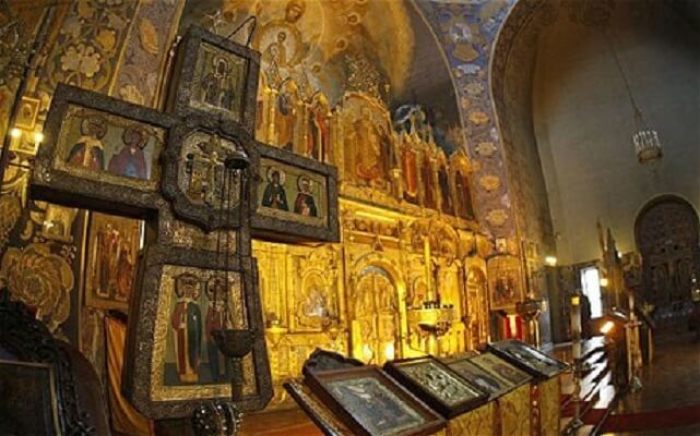Historic Underground Church Excavated in Turkey Depicts 'Christ Destroying the Devil's Soul'

A historic underground church excavated in the Cappadocia region of Central Anatolia in Turkey reportedly has frescoes depicting Jesus Christ destroying the devil's soul, which archaeologists say is a very important find relevant to the Orthodox tradition.
"We know that such frescoes have so far never been seen in any other church," Nevşehir Mayor Hasan Ünver said, according to Anadolu Agency, noting that the building could date back to the fifth century A.D.
"This place is even bigger than the other historical churches in Cappadocia. It was built underground and has original frescoes that have survived to this day," he added.
The rock-carved church was reportedly uncovered during excavations and cleaning work in an underground city as part of the Nevşehir Castle Urban Transformation Project.
Daily Sabah reported that the frescoes inside the church, which have been well-preserved and appear to date back to the 12th or 13th centuries, illustrate 'Jesus Christ's ascension and his destruction of the devil's soul.'
"The team continues to clean the area, and believes more interesting findings will come up. Some illustrations can be unique to just this church," Ünver said.
The ancient church was found in a massive underground city that archeologists discovered in March 2015, according to the National Geographic.
The massive 360,000 square meters area also includes waterways, passages, and the remains of other carved rooms.
The site reportedly dates back to Byzantine times, with initial studies at the time suggesting that it could have housed up to 20,000 people, comparable to Derinkuyu, which is the largest excavated underground city in Cappadocia.
Ünver talked more about the frescoes and said that they appear very much to be unique.
"There are exciting depictions like fish falling from the hand of Jesus Christ, him rising up into the sky, and the bad souls being killed. When the church is completely revealed, Cappadocia could become an even bigger pilgrimage center of Orthodoxy," the mayor added.
Archaeologist Semih İstanbulluoğlu explained that the frescoes had to be collected one by one, since the church is filled with earth.
"The structure was found a short time ago. The frescoes on the walls will return to their original look after restoration and cleaning work," İstanbulluoğlu said.
Fellow archaeologist Ali Aydın added that workers are being very careful to preserve the frescoes and make sure that they do not lose their features. The thin walls of the church actually collapsed due to snow and rain, but are set to be restored at a later date.
"We have stopped work in order to protect the wall paintings and the church. When the weather gets warmer in the spring, we will wait for humidity to evaporate and then we will start removing the earth," Aydın said.
He revealed that some of the other frescoes show the Apostles, the saints, and prophets such as Moses and Elyesa.




























